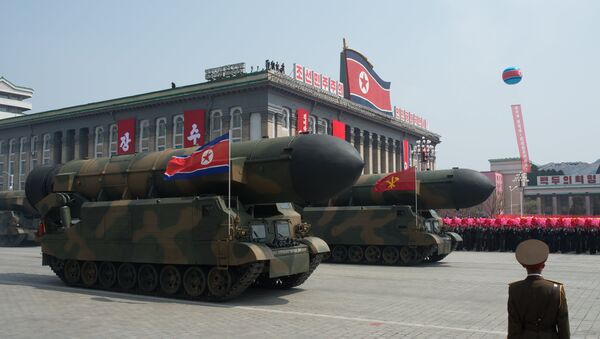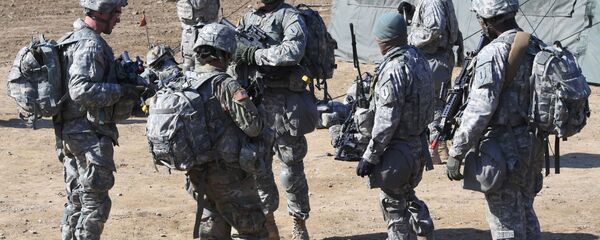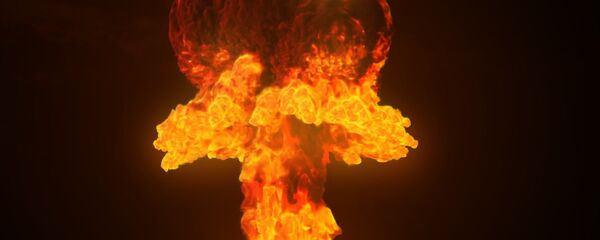“As the situation in the region becomes tenser the diplomatic activity of all the stakeholders increases, the direction of these efforts can be counter-productive,” Karneev said.
He elaborated that the current US administration sees a way out only by increasing pressure on Pyongyang but there are others who believe that the threats and power methods being used are just another way to a catastrophe.
“However, the former euphoria which manifested itself in Trump's assurances that the US, if necessary, can solve the Korean nuclear missile problem alone is gradually fading,” the deputy director said.
Karneev further said that it seems that the US president following the meeting in Mar-a-Lago is increasingly believes that the US military power is not enough to intimidate Pyongyang and is unlikely to solve the problem.
The Xinhua News Agency reported that during the recent conversation of China’s president with his American counterpart, “Xi Jinping urged all parties to exercise restraint to avoid escalation of the situation,” the expert said.
“Xi Jinping also confirmed that China opposes actions that run counter to the line of the UN Security Council,” Karneev said.
An expert of the Liaoning Academy of Social Sciences, Lu Chao, in an interview with Sputnik,said “China is steadfastly in favor of maintaining a stable and peaceful situation on the Korean Peninsula, calling for ‘pushing the brakes.’”
The expert further said that despite the fact that the US has not yet responded to such a call, it is obvious that as soon as the situation starts to change, the US will immediately become involved in the country’s affairs; but that is not what the foreign policy of the Korean Peninsula is.
“Recently there have been speculations that the DPRK will hold nuclear tests on the day of the creation of the Korean People's Army on April 25. If it happens, it will be a disaster for the DPRK. Even China, being a friendly neighbor who is in favor of mitigating the situation, will certainly support the position of the majority in the UN Security Council on tightening sanctions with regard to the DPRK if another nuclear test is conducted. Undoubtedly, this time this will lead to catastrophic consequences for North Korea,” Chao said.
The expert further said that there are opinions that the DPRK's position is to force China to abandon further economic pressure and drop its negative attitude toward nuclear testing.
“But here they [DPRK] have miscalculated: China opposes the development of nuclear weapons, at least because of the responsibility and involvement in the international control of nuclear weapons, as well as to maintain stability in Northeast Asia and ultimately for the security and expediency of North Korea itself,” Chao concluded.




